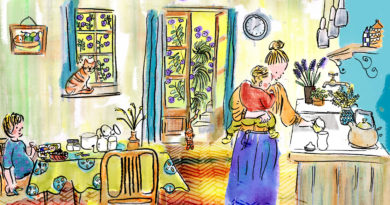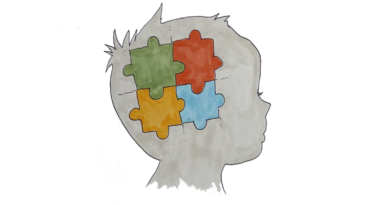The Light and Dark of Breastfeeding
Breastfeeding can be a source of pleasure and great happiness, but for many it is a time of worry, even controversy.
Your baby is there, you are filled with joy and even relief. It is a beautiful moment, filled with light. But there can also be shadows. You might have had a difficult birth – perhaps it was not as you planned, it went on longer than you anticipated. Your baby is beautiful, but you don’t really know if all is well.
And then comes the moment when your health attendant suggests you put baby to the breast.
For nine months your body has nurtured your baby, so it is only natural for your body to continue nurturing even after birth. After all, it has been our source of survival from the beginning of creation. But for many of us mothers and fathers it can cause us many doubts and difficulties and even cloud our first days of relief and elation. Some think it will spoil their figures.
After the long wait for Baby, we just want to hold her close, gaze at her in joy and pride, and put her to the breast, and maybe your natural instincts tell you to continue feeding her as you have been doing for the last months. Yet often this joy is spoilt by critical comments or doubts. Some of us have a good idea about breastfeeding but for others, it can be a whole new world. We lack the knowledge and have no role models to follow. Relatives, even husbands, can be doubtful that their wife will be able to breastfeed. Some are embarrassed to use their breasts in this new way, it feels uncomfortable, even painful. It can be difficult to take that first initial step, for fear of making fools of ourselves or losing our dignity.
Later on, some health professionals think our baby is not gaining sufficient weight. Many mothers tell us they are sad, because they have been given pumps or formula because Baby’s weight is a cause for concern. Sometimes technology and progress can be negative – how did we manage when there were no measuring scales and formula. You judged your babies by their appearance and whether they were happy or restless. So you simply fed your baby more frequently until he seemed satisfied.
As baby grows, breastfeeding brings its own special joys. It forms a very special bond between mother and baby. We have eye contact, we feel the closeness of our babies and we relax and forget our worries. The peace-bringing hormones that are activated when baby is at the breast flood our bodies and help us both to relax and enjoy these oh-so-special moments. And amazingly, a breastfeeding mother’s hormones are passed over to her partner. He shows gentleness and patience and unusual understanding and acceptance for this huge change in their lives. I have often seen such transformed partners. It is amazing.
Studies show that later on, breastfed babies grow up with greater self-confidence and feelings of security. Yet we are still beset with doubt and worries. Is my baby getting enough? Am I doing it right? Well-meaning friends and relatives question how much milk baby is getting. And how can you know when you cannot actually see it, as you would with a bottle? Those same hormones that help mothers to relax and calm down during breastfeeding also make them vulnerable negative comments. One mother I know successfully breastfed her firstborn for two years. At the next birth, her health professional asked her if she had sufficient milk to satisfy her twins. It took her six months to regain her confidence, by which time it was more than clear that her babies had gained optimal growth and weight.
Breastfeeding is nature’s way of ensuring that both mother and baby are laying down the best foundation for life both in nutritional and emotional terms, because it ensures good health, fewer infections, and prevents later health problems like food allergies, cancer (also in the mother), obesity, diabetes, and more. Breastfeeding can help to form good oral muscles, and intellectual skills, yet still there are doubts. Well-meaning relatives still wonder at the mother’s abilities. They think that answering the babies’ needs will make them spoilt and demanding as they grow up. Yet the opposite is the case as I have written earlier in this article.
Time is also a problem. Your constant presence, in order to feed your baby on demand, is not always compatible with today’s busy world. A major deterrent is perhaps the need to go back to work, or the desire to continue with a career. Perhaps you think you need to curtail your diet, or alcohol intake. Yet all these difficulties can be surmounted, as they have been throughout the ages even when crèches, pumps and formula were not around.
Breastmilk also plays a huge role in the world of commerce. How many mothers across the globe are lured away from breastfeeding by the so-called easy way of feeding their baby with a manufactured substitute? It is interesting to note that the UNHCR (the UN High Commissioner for Refugees) advocates breastfeeding in refugee and conflict situations. Relactation is encouraged – even if you are a grandmother. Breast milk is sustainable and safe, whereas formula supplies can be cut off abruptly, and they require safe water and clean bottles or cups – which are certainly lacking in many countries. The whole issue of industrial breastmilk can be a huge shadow on our fragile world, added to the fact that it is a poor substitute for the real thing.
In the end, though, breastfeeding bestows a great deal of light on the environment. In addition to all of the benefits to mother and child, the burden of manufacturing and transport costs are eliminated.
Breastfeeding can provide the optimal foundation for life and for our current and future happiness and contentment, so it would be wonderful for us all if any shadow could be transformed into light.
By Joanna Koch
Joanna has been with LLL since 1987. She came to Switzerland in 1960 and has been given eight loving grandchildren by her three children. La Leche League provides a listening ear for mothers, to help them overcome any initial difficulties and to enjoy breastfeeding, without pain or anxiety. Look on our website to find out about our monthly mothers’ groups, how to send in email enquiries, or just simply find some useful and reassuring information.
info@lalecheleague.ch or www.lalecheleague.ch
Illustration by Albina Nogueira
Albina Nogueira has been a primary school teacher since 1992, and a writer and illustrator since 2006. She currently lives in Switzerland, but her homeland is Portugal. She is also the author of Letters to Grandparents and Hairdresser. To find out more, like her on Facebook or see her books in Amazon.




